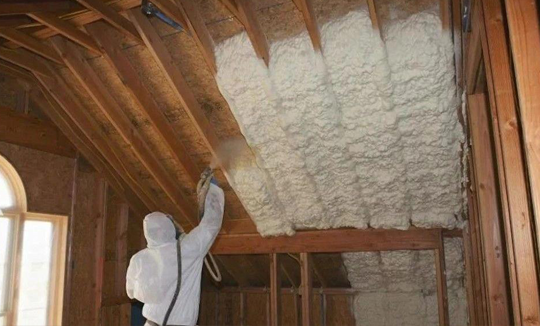Are you looking for ways to make your home more energy-efficient? One of the best places to start is upgrading your insulation system. By improving the quality of your insulation, you can reduce heat loss and air infiltration, leading to improved energy efficiency and cost savings.
Upgrading your insulation also provides numerous health benefits by providing a better indoor environment that reduces allergens, noise pollution, and humidity levels in the home. This guide will explore all the advantages of upgrading your housing’s insulation system.
Energy Efficiency and Cost Savings
Upgrading your insulation system will help to reduce energy losses from your home, leading to improved energy efficiency.
This can translate into lower utility bills, as you won’t have to use as much energy to heat or cool the house.
In addition, many insulation materials also serve as a form of thermal mass that helps regulate temperature fluctuations in the home so you can enjoy more consistent indoor temperatures throughout the day.
Health Benefits
By reducing air infiltration, upgrading your insulation system helps to reduce the amount of allergens and pollutants that enter the home. This can drastically improve indoor air quality, improving respiratory health and reducing the risk of allergies or asthma attacks.
Additionally, insulation provides a barrier against outdoor noise pollution, helping to create a quieter and more peaceful indoor environment.
Lastly, insulation helps regulate humidity levels in the home, which can help decrease the growth of mold and mildew and reduce the risk of water damage.
Long-Term Value
Upgrading your insulation system is an investment that will provide benefits for years to come.
Not only will you enjoy immediate cost savings and improved indoor comfort, but you’ll also increase the resale value of your home.
Potential home buyers always look for features that make a house more energy-efficient, so that a new insulation system can be a great selling point.
Protection against Damage
Your insulation system also helps to protect your home from potential damage. Poorly insulated walls or attics can be vulnerable to moisture damage due to condensation, while insufficient insulation can lead to frozen pipes during the winter months.
Investing in a quality insulation system can help prevent costly repairs and extend the life of your home’s structure.
Less Noise Pollution
With a new insulation system, your home will be better protected against outside noise pollution.
This can be especially beneficial if your home is in a busy area, such as near a highway or airport.
Insulation is an effective acoustic barrier that prevents sound waves from entering the building and disturbing your peace and quiet indoors.
FAQ
How much cooler does the insulation make a house?
During hot summers, insulation helps reduce indoor temperatures by preventing solar radiation from entering the home. In addition, proper insulation can help reduce air conditioning costs by keeping cool air inside the house and warm air outside.
How much does it cost to upgrade my insulation?
The cost of an insulation upgrade varies depending on various factors, such as the size of your home, the type of insulation material used, and the area of the country in which you live.
Generally, upgrading your insulation system is a long-term investment that can reduce energy costs and improve indoor comfort over time.
It is, however, recommended to hire a professional contractor such as iFOAM who can assess your home’s needs and provide an accurate estimate.
What are the most common types of insulation?
The three most common types of insulation are fiberglass, cellulose, and spray foam. Fiberglass is the most common and affordable type of insulation, while cellulose is made from recycled paper fibers and offers superior fire resistance.
Spray foam is a highly efficient insulation material that can help provide superior energy efficiency and air-sealing capabilities, although it is more expensive than other options.
How often should I replace my insulation?
In general, most types of insulation only need to be replaced if there has been water damage or some structural issue. Inspecting and maintaining your insulation system regularly is essential to ensure optimal performance.
This can be done by hiring a professional contractor who can assess the condition of your insulation and advise when a replacement is needed.
Upgrading your home’s insulation system offers numerous benefits, making it an attractive investment for any homeowner. From improved energy efficiency and cost savings to better indoor air quality and a quieter indoor environment, it’s clear that investing in an upgrade can provide long-term value. Plus, with the help of a professional contractor, you’ll be sure to get the most out of your insulation system.




















